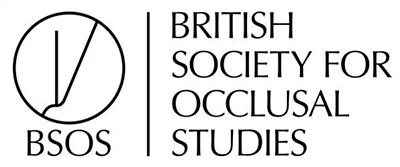Quality, precision equipment
Mark Hargreaves, instructor for the British Society for Occlusal Studies, explains the importance of working with the right articulator when it comes to occlusion and why the Denar 300 series fits the bill
The British Society for Occlusal Studies (BSOS) is a group for dentists and technicians and other dental professionals who have a particular interest in occlusion, the study of the dynamic relationship between the surfaces of the teeth and how they move in function. The BSOS aims to promote a greater understanding of this subject, both amongst the profession and the general public. Mark Hargreaves is both a member and instructor for the BSOS, as well as a practising dentist.
As an association, do you consider part of your role to be a recommender of products?
We do not have any financial interest in any particular products but, if asked advice, we will suggest what we believe are the best products for a particular purpose.
On what basis do you recommend particular products for members?
We need to use various materials, products and tools to help as part of our teaching programme, both for demonstration and for treatment purposes. Our teaching programme has been developed in conjunction with IPSO, The International Partnership for the Study of Occlusion, and we use the same equipment. IPSO’s teaching is based on the work of Dr Niles Guichet, the developer of the Denar system.
How important is the articulator in your role?
An articulator is essential for understanding the dynamics of occlusion and applying the principles to your own patients.
Which articulator do you recommend?
The articulator needs to be easy to understand, it should represent the natural movements of the jaws, be easy to handle, and easy to transfer patients’ records to. The Denar range has always been used in our teaching programme as it fulfils these criteria.
What made you select the new DenarMark 300 articular series?
We wanted a modern, easy-to-use product that was capable of being adjusted to cover most of the variables we find amongst our patients. At the same time, we can still use our Denar Slidematic Facebows to transfer records without needing new kit. The magnetic plate system makes it easy to replace models as required.
Having my own articulator is essential for proper treatment planning, for communicating with the laboratory and for showing patients what the problem is (and how we plan to solve it).
What has the feedback been from the laboratories you work with on the switch?
My laboratory is happy to work with the new articulator range. They particularly like the ease of handling and the interchangeable magnetic base plates.
The switch has been seamless. I’m very happy to know that my lab is using quality, precision equipment. My patients deserve the best.
What would your advice be to other labs/ dentists considering an upgrade of their current articulator?
It’s important to choose an articulator that is durable as they are often subject to rough handling, precisely engineered for accuracy and that is easy to use. It should work according to familiar principles that both the dentist and technician understand otherwise neither will use it. The articulator should have settings that represent the vast majority of patients and it should be compatible with an easy-to-use facebow system. The Denar 300 system fulfils all these criteria and at BSOS we particularly like the Denar Mark 330, both for teaching and for treating patients.
Where can we find the next BSOS course?
For up to date event information and more information, visit bsos.org.uk or the BSOS Facebook page at www.facebook.com/BSOSorg
Available exclusively from Prestige Dental.
Call 01274 721567
Email info@prestige-dental.co.uk
Website www.prestigedental.co.uk
